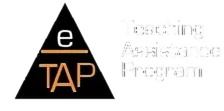Government Standards
Australian Curriculum
Science - Grade 8
Assessment Exam - Australian Curriculum - Level 8 Science| Science Understanding | eTAP Lesson |
|---|---|
| Biological sciences | |
| Cells are the basic units of living things; they have specialised structures and functions
ACSSU149 |
Basic Cell Characteristics |
| Multi-cellular organisms contain systems of organs carrying out specialised functions that enable them to survive and reproduce
ACSSU150 |
Mitosis and Organism Development |
| Chemical sciences | |
| Properties of the different states of matter can be explained in terms of the motion and arrangement of particles
ACSSU151 |
Atoms and Molecules |
| Differences between elements, compounds and mixtures can be described at a particle level
ACSSU152 |
Identifying Elements |
| Chemical change involves substances reacting to form new substances
ACSSU225 |
Reactions and Energy |
| Earth and space sciences | |
| Sedimentary, igneous and metamorphic rocks contain minerals and are formed by processes that occur within Earth over a variety of timescales
ACSSU153 |
Earth Processes and Life on Earth Rock Cycle |
| Physical sciences | |
| Energy appears in different forms, including movement (kinetic energy), heat and potential energy, and energy transformations and transfers cause change within systems
ACSSU155 |
The Law of Conservation of Mass |
| Science as a Human Endeavour | eTAP Lesson |
| Nature and development of science | |
| Scientific knowledge has changed peoples’ understanding of the world and is refined as new evidence becomes available
ACSHE134 |
Finding Answers to Questions |
| Science knowledge can develop through collaboration across the disciplines of science and the contributions of people from a range of cultures
ACSHE226 |
|
| Use and influence of science | |
| Solutions to contemporary issues that are found using science and technology, may impact on other areas of society and may involve ethical considerations
ACSHE135 |
United States’ Environmental Laws |
| People use science understanding and skills in their occupations and these have influenced the development of practices in areas of human activity
ACSHE136 |
Water Supply |
| Science Inquiry Skills | eTAP Lesson |
| Questioning and predicting | |
| Identify questions and problems that can be investigated scientifically and make predictions based on scientific knowledge
ACSIS139 |
|
| Planning and conducting | |
| Collaboratively and individually plan and conduct a range of investigation types, including fieldwork and experiments, ensuring safety and ethical guidelines are followed
ACSIS140 |
|
| Measure and control variables, select equipment appropriate to the task and collect data with accuracy
ACSIS141 |
Tools and Technology |
| Processing and analysing data and information | |
| Construct and use a range of representations, including graphs, keys and models to represent and analyse patterns or relationships in data using digital technologies as appropriate
ACSIS144 |
|
| Summarise data, from students’ own investigations and secondary sources, and use scientific understanding to identify relationships and draw conclusions based on evidence
ACSIS145 |
Information Collection |
| Evaluating | |
| Reflect on scientific investigations including evaluating the quality of the data collected, and identifying improvements
ACSIS146 |
|
| Use scientific knowledge and findings from investigations to evaluate claims based on evidence
ACSIS234 |
How to Draw and Present Conclusions |
| Communicating | |
| Communicate ideas, findings and evidence based solutions to problems using scientific language, and representations, using digital technologies as appropriate
ACSIS148 |
|


